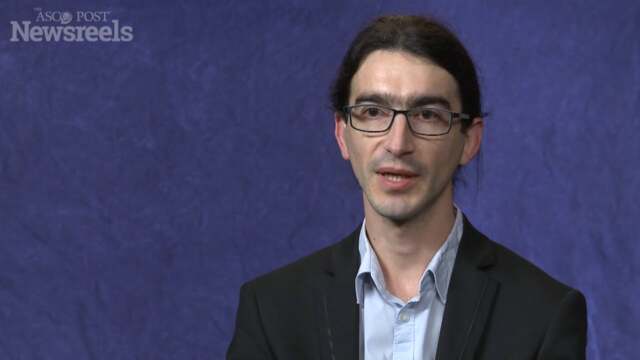Scott Kopetz, MD, on Colorectal Cancer: Results of the SWOG 1406 Trial
2017 Gastrointestinal Cancers Symposium
Scott Kopetz, MD, of The University of Texas MD Anderson Cancer Center, discusses study findings on irinotecan and cetuximab with or without vemurafenib in BRAF-mutant metastatic colorectal cancer (Abstract 520).
Michael J. Overman, MD, of The University of Texas MD Anderson Cancer Center, discusses study findings on nivolumab alone or in combination with ipilimumab in patients with DNA mismatch repair–deficient/microsatellite instability high metastatic colorectal cancer (Abstract 519).
Eileen M. O’Reilly, MD, of Memorial Sloan Kettering Cancer Center, discusses a range of topics, including tyrosine kinase inhibitors, immune therapies, targeted approaches, and DNA damage repair strategies.
Cornelis van de Velde, MD, PhD, of Leiden University Medical Center, discusses the International Watch & Wait database, established to track evidence on organ-preserving strategies in patients with rectal cancer (Abstract 521).
For More Information: www.IWWD.org
Brendan J. Guercio, MD, of the Dana-Farber Cancer Institute, discusses results from a study of patients with metastatic colorectal cancer who took part in weekly physical activity and its impact on their disease progression and overall survival (Abstract 659).
Julien Edeline, MD, of the Centre Eugène Marquis, discusses study findings on gemcitabine and oxaliplatin vs surveillance following surgery for localized biliary tract cancer (Abstract 225).





